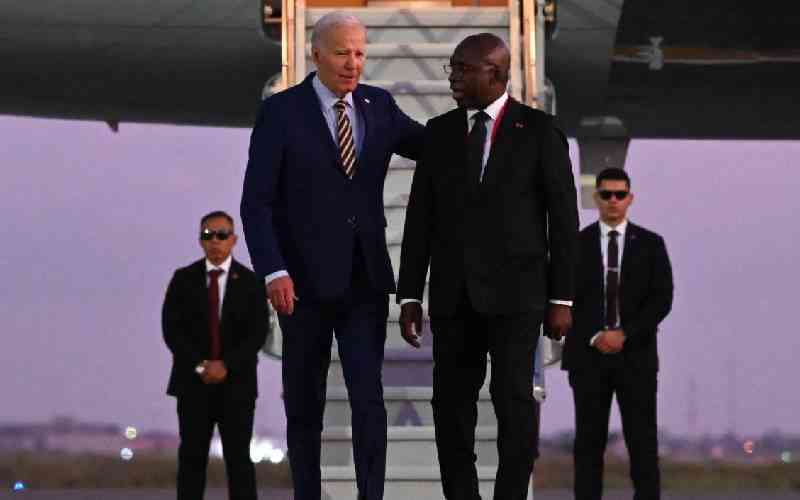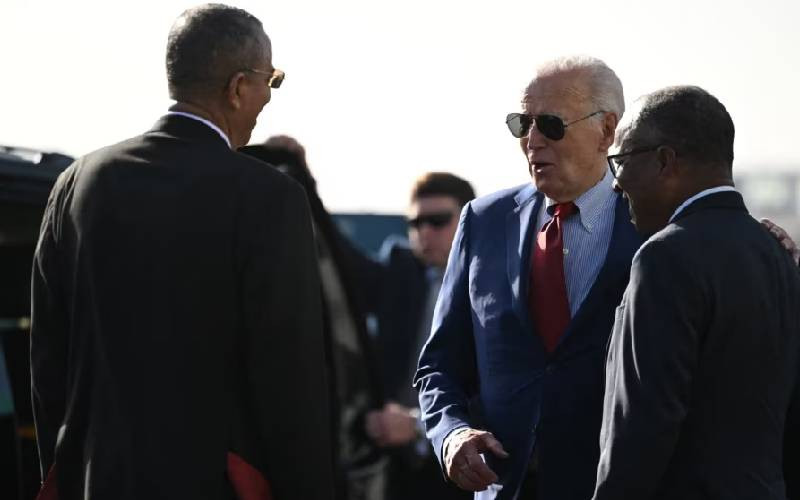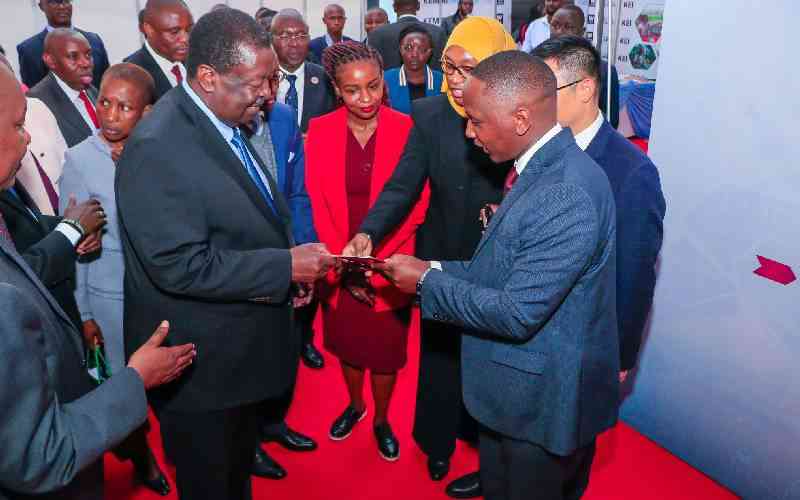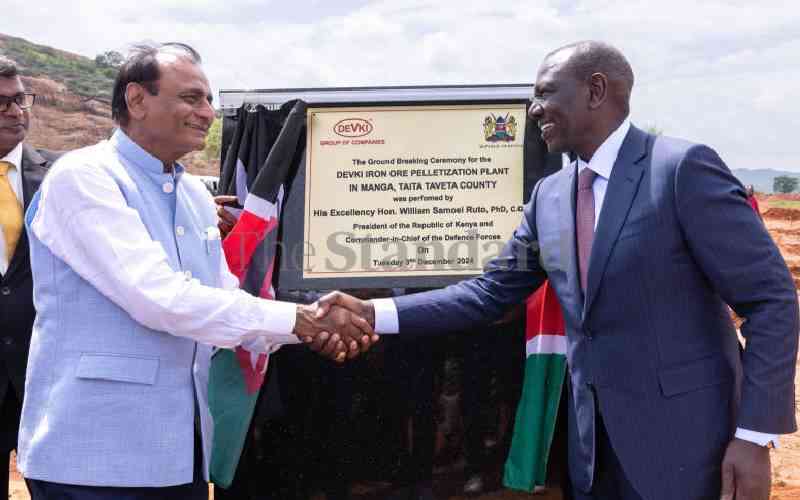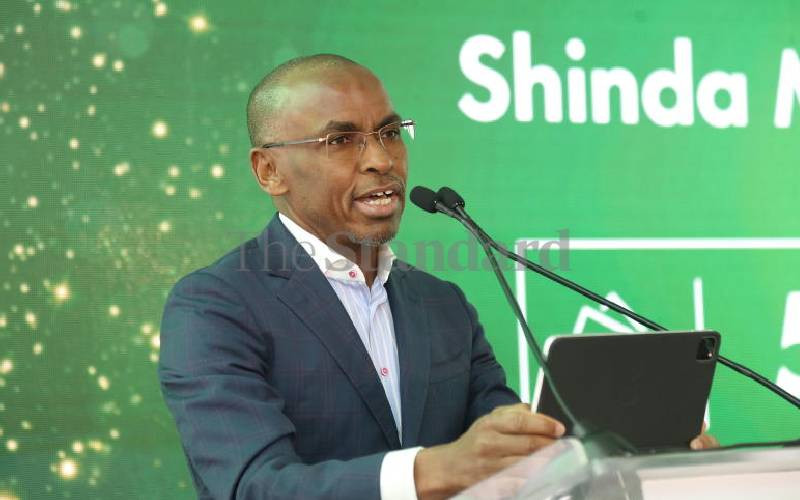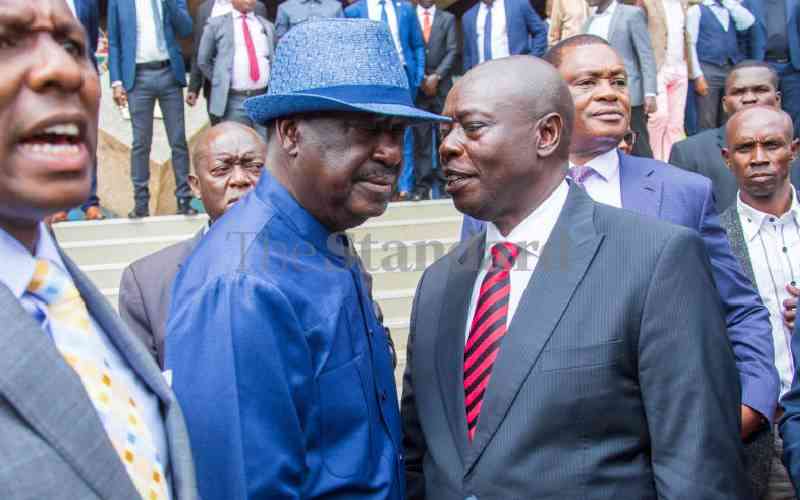In a world marked by intense geopolitical competition, China stands out as a country that has shown Africa a path to industrialisation and modernisation without imposing stringent conditions, unlike many Western countries and their multilateral institutions.
As a result, China's growing influence in Africa has prompted Western powers, who see themselves as geopolitical leaders, to reconsider their strategies. Some have shifted from focusing solely on capacity-building programmes to engaging in tangible development projects on the continent.
Beijing’s influence has been rising, with its investments in Africa surpassing those of the US. While Washington under President Joe Biden’s administration has done little in terms of development, and even with his visit to Angola this week, just a month before leaving office in January 2025, China has continued to execute massive infrastructural projects in a continent historically sidelined by its former colonisers.
Biden’s visit to Africa is aimed at reassuring the continent that Washington understands its development agenda and is ready to help. This marks a shift from the long-standing view that Africa primarily needs foreign aid and donations, rather than tangible development. These changes are occurring in large part due to China’s sustained commitment to supporting Africa without internal interference.
As Kenya continues to benefit from numerous FOCAC and BRI projects, Washington has identified Nairobi as a key ally in Africa. The US has pledged to build an expressway from Nairobi to Mombasa and has also identified Angola as a strategic partner. Biden’s visit to Angola signals the US’s commitment to realising the multi-billion-dollar Lobito Corridor project and exploring mineral resources in Zambia and the Democratic Republic of Congo. Meanwhile, China's footprint is evident in nearly every African country, a reality that has unsettled some Western nations.
With a population of 1.3 billion, Africa faces an annual infrastructure funding gap of approximately $100 billion. China’s promise to fund 30 infrastructure projects, made during the ninth Forum on China-Africa Cooperation (FOCAC) in Beijing in September, will help bridge this gap.
Currently, Eswatini is the only African country that hasn’t received development projects under the Belt and Road Initiative (BRI) and the FOCAC, due to its diplomatic ties with Taiwan, which violate the One-China principle. This highlights the challenges the US faces in countering Beijing's influence with just a single trip to Angola.
For years, Western countries have portrayed Africa as an insecure region plagued by power-hungry leaders and poverty. This perception has deterred large-scale investments and development support, depriving the continent of essential progress. In contrast, Beijing took the risk and invested heavily, with China-backed projects accounting for seven out of ten ongoing or completed infrastructure projects in many African countries.
The decades-long bilateral relationship between China and Africa has seen significant development in areas such as roads, railways, ports, technology, and trade, leading to positive economic growth. As a result, Western nations, led by the US, are playing catch-up, with Biden’s visit serving as proof of their growing concern over China’s increasing influence in Africa.
In response to China’s growing presence, the West has launched initiatives like the G7’s Partnership for Global Infrastructure and Investment (PGII), aimed at challenging projects such as the Standard Gauge Railway (SGR). This project seeks to create Africa’s first transcontinental open-access rail network, linking Lobito, Angola, and connecting the Atlantic and Indian Oceans. This newfound interest in African infrastructure is largely driven by China’s extensive investment.
While Western investors have largely focused on governance, anti-corruption efforts, HIV/AIDS, and military training, these initiatives lack the immediate, tangible impact of infrastructure projects, which are vital for economic growth. In contrast, China’s approach, to large-scale infrastructure projects, has delivered visible and lasting results, addressing urgent needs.
Biden’s visit to Angola is intended to demonstrate that the US has not forgotten Africa and is ready to roll out multibillion-dollar projects in partnership with the G7. However, these countries only began considering such capital-intensive projects when they realized their influence was waning due to China’s aggressive strategy through BRI and FOCAC.
The increasing success of China in Africa has led some to speculate that a Republican administration under Donald Trump may attempt to counter African nations’ cooperation with China by cutting off aid. Over the years, the US and its allies have focused on donations and aid, which often seem to serve their interests. China has taken a different approach, offering concessional loans and financing major projects, aligned with the national interests of African countries.
China-funded projects in Africa are always request-based, complicating claims that Beijing is trapping nations in debt. Unlike the US and its allies, who have been slow to fund large projects, China has proven its ability to finance significant infrastructure. If China were to pull out today, it’s unclear whether the West would continue its engagement, suggesting they are more focused on maintaining the status quo rather than fostering genuine development in Africa.
With China pledging $50 billion (Sh6.4 trillion) in financial support to Africa over the next three years, up from $30 billion in 2021, the continent can enhance its cooperation with the Asian economic giant. While this pledge is lower than the $60 billion promised in 2015 and 2018, it highlights Beijing's ongoing commitment to supporting Africa's economic and developmental goals amidst global geopolitical tensions.
Stay informed. Subscribe to our newsletter
The writer is a journalist and communication consultant.
 The Standard Group Plc is a
multi-media organization with investments in media platforms spanning newspaper
print operations, television, radio broadcasting, digital and online services. The
Standard Group is recognized as a leading multi-media house in Kenya with a key
influence in matters of national and international interest.
The Standard Group Plc is a
multi-media organization with investments in media platforms spanning newspaper
print operations, television, radio broadcasting, digital and online services. The
Standard Group is recognized as a leading multi-media house in Kenya with a key
influence in matters of national and international interest.
 The Standard Group Plc is a
multi-media organization with investments in media platforms spanning newspaper
print operations, television, radio broadcasting, digital and online services. The
Standard Group is recognized as a leading multi-media house in Kenya with a key
influence in matters of national and international interest.
The Standard Group Plc is a
multi-media organization with investments in media platforms spanning newspaper
print operations, television, radio broadcasting, digital and online services. The
Standard Group is recognized as a leading multi-media house in Kenya with a key
influence in matters of national and international interest.

